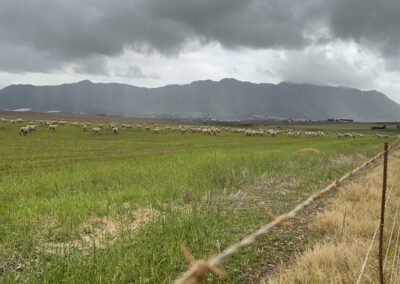14/12/17 (Business Day) – On Thursday, Treasury published the second draft of the Carbon Tax Bill for public comment and introduction in Parliament. Public hearings on the draft bill — expected early next year — will be held in Parliament, following which a revised bill, taking into account the public comments, will be formally tabled in Parliament, probably around the middle of 2018.
The first draft Carbon Tax Bill was published for public comment in November 2015. It is the product of an extensive consultative process on carbon tax policy which started with the publication of the carbon-tax discussion paper in 2010, followed by the 2013 carbon-tax policy paper, and the 2014 carbon-offsets paper.
Treasury said in a statement that the carbon tax bill will enable SA to meet its commitments under the 2015 Paris Agreement on climate change and to reduce its greenhouse gas emissions. According to its estimates, the tax would lead to an estimated decrease in greenhouse gas emissions of 13% to 14.5% by 2025, and 26% to 33% by 2035.
The actual date of implementation of the carbon tax will be determined through a separate and later process by Finance Minister Malusi Gigaba in an announcement either during 2018 or at the time of the 2019 budget, taking into account the state of the economy.
“The announcement on the implementation date of the carbon tax will be complemented by a package of tax incentives and revenue recycling measures to minimise the impact in the first phase of the policy (up to 2022) on the price of electricity and energy-intensive sectors, such as mining, iron and steel,” Treasury said.
“The impact of the tax in the first phase is designed to be revenue-neutral in terms of its aggregated impact when assessed with the complementary tax incentives and revenue-recycling measures. Further, to ensure a minimal impact on the price of electricity in the initial phase, a credit for (or reduction in) the electricity-generation levy and the renewable-electricity premium (built into the current price of electricity) will also be introduced.
“Some revenue-recycling measures have already been introduced, such as the energy-efficiency savings tax incentive (introduced in 2013) to help with the transition to a lower carbon economy. The effective recycling of revenues to be collected will mitigate any possible short-term negative impacts on the economy and jobs.
“Beyond the first phase, a review of the impact of the tax after at least three years’ implementation will be conducted. The review will take into account the progress made to reduce greenhouse gas emissions, in line with our commitments. Future changes to rates and tax-free thresholds in the carbon tax will only follow after the review, and will be subject to the same transparent and consultative processes for all tax legislation, after any appropriate budget announcements by the Finance Minister.”



